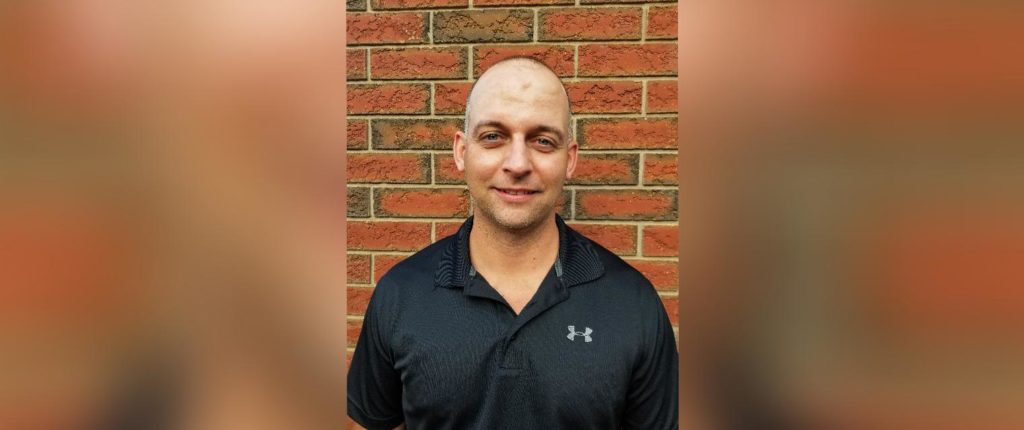
Firefighter’s near-fatal high-rope rescue
Nobody knew the status of the hikers who were lost somewhere near Albion Falls. Captain Charles Madder of the Hamilton Fire Department arrived at the top of the gorge with fellow members of the High Angle Rope Rescue team in July 2019. What started as a search-and-rescue mission quickly turned into a life-threatening situation for Madder himself.
“As I was preparing to descend, the platform of rock under me suddenly collapsed,” recalls Madder. “I fell 20 to 30 feet, hit another platform, then fell 10 to 15 feet face-first into shallow water. That’s when I lost consciousness.”
The fire department raised Madder up from the ravine and paramedics rushed him to Hamilton General Hospital (HGH), a leading provincial trauma centre.
“My head and chin were split open, and my nose was ripped off,” says Madder. “Scans revealed that my skull was shattered on the right side, I had a fractured orbital bone and I had two brain bleeds.”
The brain bleeds stopped on their own, but cerebrospinal fluid began to leak out of his nose. Madder underwent emergency surgery to remove his upper-right sinus, add plates to his forehead and reconstruct his nose using bone fragments.
“Scans revealed that my skull was shattered on the right side.”
“Fortunately, I started to recover more quickly than anybody expected,” he says. “By the second or third day, I was able to walk to the washroom on my own. I slowly regained strength and I was discharged about a week and a half after being admitted.”
Road to rehabilitation
Madder was referred to specialists in the Acquired Brain Injury Program at the Regional Rehabilitation Centre (RRC), including an occupational therapist and a psychologist, who worked with him to overcome the effects of the accident. He was given exercises to do at home and he had consultations to deal with potential post-traumatic stress disorder.
Of all the neurological effects he experienced, fatigue was the worst, but his energy levels continue to improve. Other concerns, such as blind spots, sensitivities to light and sound, and the occasional difficulty finding words when speaking, have improved significantly with time.
Gratitude for life
“I’ve come a long way in such a short period of time,” says Madder, “I continue to see improvements every day.”
Madder is grateful for the ability to spend more time with his wife and children as his recovery continues.
“Thank you to the amazing trauma team at HGH and the specialists at the RRC for saving my life and helping me recover,” says Madder. “I’m really looking forward to getting back to work with my fellow firefighters. I’m an extremely fortunate person in so many ways.”
